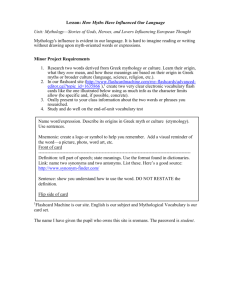World Literature Fall 2016 CLAS2260 Drama and Society in Ancient Greece
advertisement
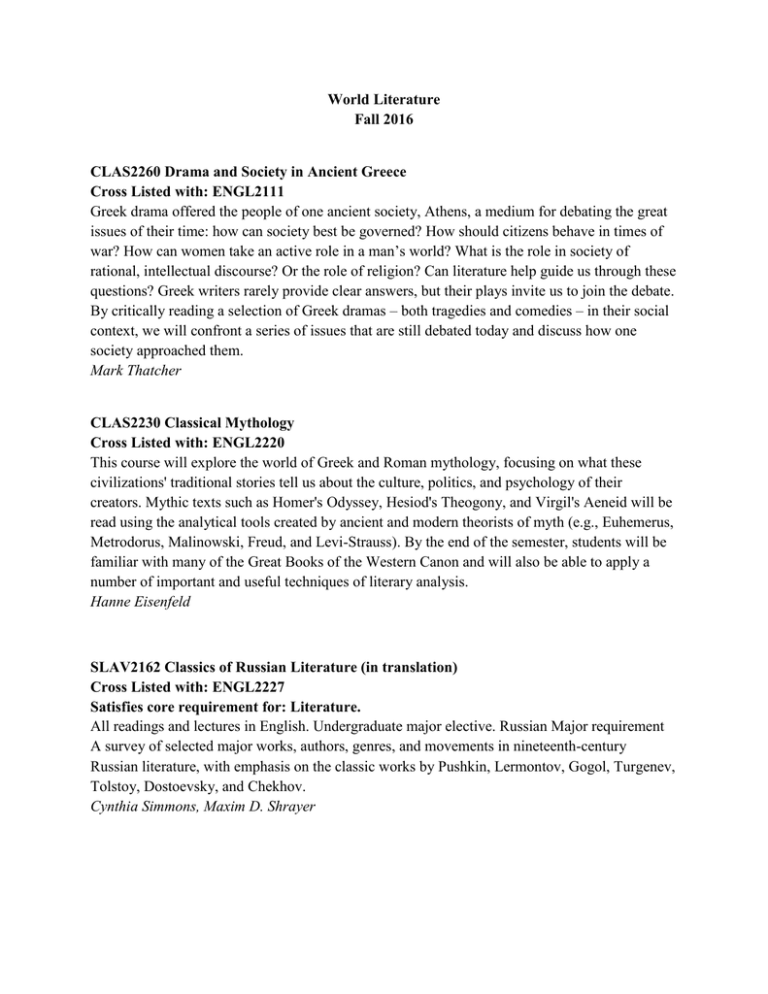
World Literature Fall 2016 CLAS2260 Drama and Society in Ancient Greece Cross Listed with: ENGL2111 Greek drama offered the people of one ancient society, Athens, a medium for debating the great issues of their time: how can society best be governed? How should citizens behave in times of war? How can women take an active role in a man’s world? What is the role in society of rational, intellectual discourse? Or the role of religion? Can literature help guide us through these questions? Greek writers rarely provide clear answers, but their plays invite us to join the debate. By critically reading a selection of Greek dramas – both tragedies and comedies – in their social context, we will confront a series of issues that are still debated today and discuss how one society approached them. Mark Thatcher CLAS2230 Classical Mythology Cross Listed with: ENGL2220 This course will explore the world of Greek and Roman mythology, focusing on what these civilizations' traditional stories tell us about the culture, politics, and psychology of their creators. Mythic texts such as Homer's Odyssey, Hesiod's Theogony, and Virgil's Aeneid will be read using the analytical tools created by ancient and modern theorists of myth (e.g., Euhemerus, Metrodorus, Malinowski, Freud, and Levi-Strauss). By the end of the semester, students will be familiar with many of the Great Books of the Western Canon and will also be able to apply a number of important and useful techniques of literary analysis. Hanne Eisenfeld SLAV2162 Classics of Russian Literature (in translation) Cross Listed with: ENGL2227 Satisfies core requirement for: Literature. All readings and lectures in English. Undergraduate major elective. Russian Major requirement A survey of selected major works, authors, genres, and movements in nineteenth-century Russian literature, with emphasis on the classic works by Pushkin, Lermontov, Gogol, Turgenev, Tolstoy, Dostoevsky, and Chekhov. Cynthia Simmons, Maxim D. Shrayer ENGL2255 Introduction to Post-Colonial Literature Cross Listed with: AADS2254 Satisfies core requirement for: Cultural Diversity. India, Nigeria, Colombia, Haiti: all four were at one point ruled by European powers. In this course we will examine colonialism's impact on nations around the world by reading a diverse array of novels written by the formerly colonized. In addition to learning about the history of colonialism, we will explore how colonialism's legacy continues to shape the world through the perspectives of those it has affected most. Amelie Daigle ENGL4527 ATS: Novels of the World What counts as a “novel of the world”? We will focus on contemporary novels by authors across the globe. We will explore ideas, narrative structures, and styles of writers such as Mahfouz (Egypt), Marquez (Columbia), Kundera (former Czechoslovakia), Pamuk (Turkey), Hosseini (Afghanistan), Tahar Ben Jelloun (Morocco), Cha (Korea), and Coetzee (South Africa). Through close reading, we will examine the aesthetics of each novel, comparing the books as we proceed. We will be attuned to their political, social, and historical dimensions. With sensitivity, we will address questions of cultural difference. Relevant post-colonial (Said) and psychoanalytic theory (Freud, Kristeva) will be included. Frances Restuccia
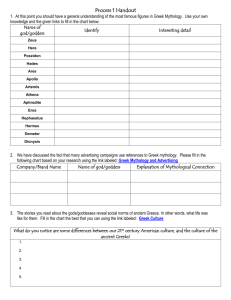
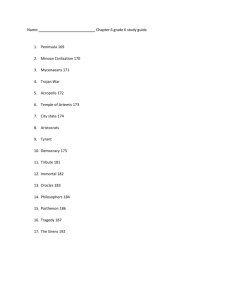

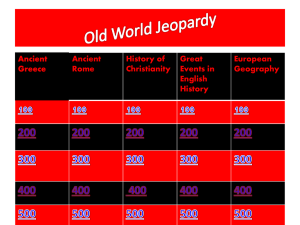



![[DISCUSSION] Ancient Greek ‘romances’: context and considerations](http://s2.studylib.net/store/data/012946398_1-b3955d61bb00ed47297f47a8b37290c1-300x300.png)
